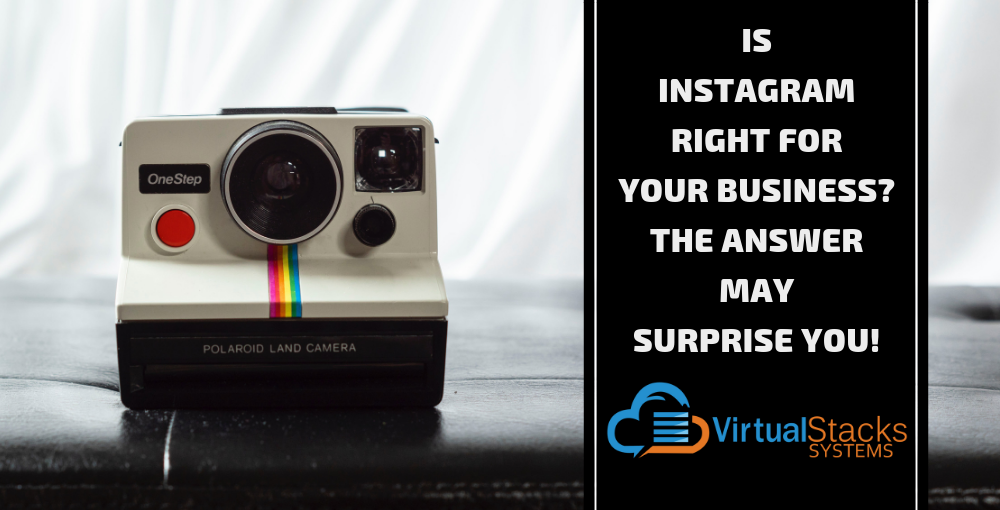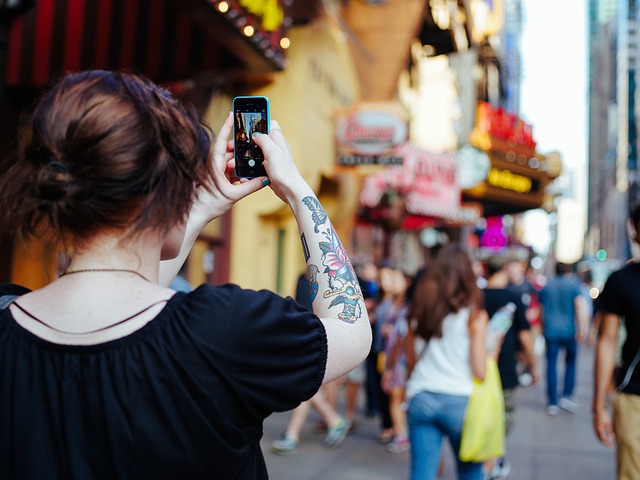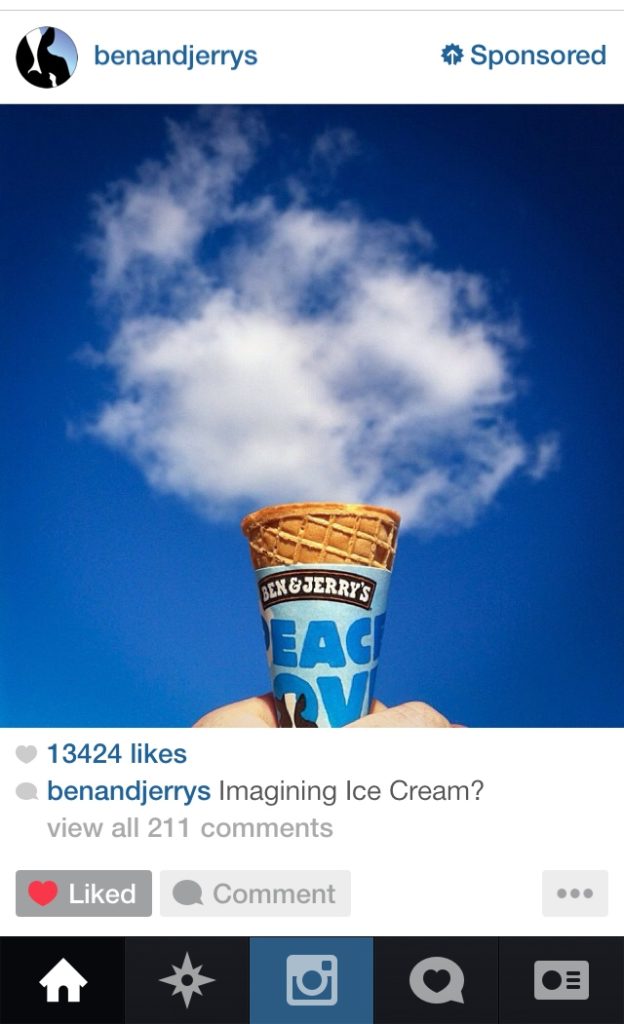
11 Jan Is Instagram Right for Your Business? The answer may surprise you!
Once considered the realm of selfie-obsessed millennials, Instagram has become a power player for brands looking to increase their clout. Since its purchase by Facebook in 2012, the photo-based social media platform continues to grow. In addition to the familiar posts, Instagram now supports IGTV and Instagram Stories – as covered in our January 4, 2019 blog post, “Social Media Marketing Trends for 2019.” And it’s a robust advertising platform, as well, thanks to the Facebook factor. According to Lyfe Marketing, 90 percent of the world’s top 100 brands have an Instagram account.
With such impressive evidence, every business should be on Instagram, right? No so fast.
The truth is, many small-to-medium-size business owners are unfamiliar with social media – at least, how it relates to business. Personal Facebook, Twitter and Instagram accounts are for one’s own enjoyment, not making money. So when faced with having to decide which social media platforms to be on, the tendency is to cover all bases to make sure you don’t miss any potential customers. Becoming informed about the nature of Instagram can help you determine if it will pay off in increased brand awareness, conversions and sales, or be digital dead weight.
Who uses Instagram?
 Instagram users are overwhelmingly young. As reported by HootSuite, users under age 35 make up more than 70 percent of Instagram’s more than 800 million active accounts worldwide.
Instagram users are overwhelmingly young. As reported by HootSuite, users under age 35 make up more than 70 percent of Instagram’s more than 800 million active accounts worldwide.
If your brand targets this demographic, Instagram is likely a good choice for your social media lineup. The trick is in making the most of it through the right combination of organic posts and paid ads.
Advantages of Instagram’s ad platform

As Lyfe Marketing points out, Instagram’s ad platform has access to the most advanced social media advertising targeting options available.
Sales and leads are trackable, so you can measure ROI, and it differentiates personal profiles from business profiles.
Writing for Zimmer Radio & Marketing Group, Rebecca Milner reports that Instagram has a more engaged audience than Facebook, garnering 58 times more engagement per follower. Studies also show that only 32 percent of Facebook users regularly engage with brands, while 68 percent of Instagram users do.
Because Instagram syncs with Facebook, Milner writes, “. . . businesses are now able to run the same advertisement on Facebook and Instagram at the same time, adding seamless, easily-attainable integration. This means that any time a business runs an ad on either of these platforms, they can automatically double their reach!”
However, Instagram is not the right choice for every business.
In fact, you can waste resources and budget dollars sustaining an account that won’t provide a benefit.
Reasons include the following:
Target audience – Instagram is much better suited for business-to-consumer (B-to-C) engagement than business-to-business (B-to-B). Consumers have more time and inclination to like, follow and become a customer of a product or service for which they are the intended end-user. In the B-to-B world, your target market consists of other business owners, C-suite executives and managerial decision-makers – not likely the types to spend time on social media platforms other than LinkedIn during the work day.
Also keep in mind Instagram’s young demographic. If you’re selling energy drinks or cosmetics, great! If you’re selling widgets, don’t expect much attention. Widgets aren’t photogenic, and you can’t photograph people using them. Which leads to the next reason.
Your brand isn’t “Instagramable” – Some products or services don’t lend themselves to being photographed or otherwise presented in a visually interesting way. Although an Instagram post supports a good amount of text, it’s really a visual platform – and if your subject matter falls flat, your intended audience members won’t bother to click to read the message. As visionary media sensei Marshall McLuhan wrote, the medium is the message (emphasis ours).
Getting back to energy drinks, Red Bull’s Instagram account is filled with action photos of its sponsored athletes and motorsports drivers performing thrilling moves in fascinating locales. As for cosmetics, Lime Crime’s self-described “Makeup for Unicorns™” Instagram features models as works of art in fantasy makeup – all sparkles and bright not-found-in-nature colors. Videos, professionally staged product shots and the occasional meme round out the glittering experience.
As evidenced by these two examples, a good Instagram account extends the brand identity and immerses consumers in its world. It’s all part of effective social media storytelling, as covered in our September 6, 2019 blog post, “Scheherazade Meets Instagram – Using Digital Media in Storytelling.”
Granted, not every brand has the budget to make as big a visual splash as those mentioned above, but you get the idea of what’s required to engage the Instagram demographic. Our June 29, 2018 blog post, “Get a Sharper Image for Your Brand Through Sharper Images,” offers easy, economical tips for businesses to improve the quality of their photos for use on websites and social media.
You can’t post on a frequent basis – The most popular Instagram accounts post at least once daily. Again, its young demographic expects to be rewarded with fresh content every time they visit to keep them engaged. If your business can only manage one or two posts per week, Instagram is probably not right for your social media mix.
Dangers to watch out for
Even if the spirit of Scheherazade is strong in your Instagram account, there are still online dangers lurking – spamming, for example. You could be spending ad money and valuable time, only to get likes from bots (fake accounts) in return. Make sure to examine the accounts you are getting likes from to see if you should adjust your ad settings.
According to Madeline Buxton, writing about bots for Refinery29, “There is no shortage of them online: In early 2017, data security company Imperva released its bot report, finding that bots accounted for 51.8% of all online traffic the year prior. Good bots made up 22.9% of that total; but bad bots, including ones that cracked passwords or carried viruses, accounted for 28.9%.”
Buxton’s article provides detail about how to tell a bot account from a legitimate one, but an incomplete profile, few connections and questionable account activity are among the giveaways. Buxton recommends reporting suspected bots to Instagram by going to the bot’s profile, tapping the three dots in the upper right corner and selecting “Report.” This will also block the account from your follower list.
Down on the click farm
If you’ve never heard of a click farm, you may wonder what it harvests. Basically, your pay-per-click (PPC) ad dollars. In his article for PPC Protect, Sam Carr provides this definition: An undercover operation in which individuals fraudulently interact with a website to artificially boost the status of a client’s website, product or service.
 Writes Carr: “Although many click farms specialise in Facebook likes and Twitter followers, some click farms like to focus on pay per click ads.
Writes Carr: “Although many click farms specialise in Facebook likes and Twitter followers, some click farms like to focus on pay per click ads.
By paying people to click pay per click ads on their own site, these fraudsters can make a handsome profit from your ad budget … With PPC bids ranging from just a few cents to tens of dollars, even a handful of fraudulent clicks could cost you a big chunk of your advertising budget.”
Note to members of the spelling police out there: Carr lives in the United Kingdom.
Now that you know the advantages, disadvantages and pitfalls of Instagram, you are hopefully in a better position to make an informed decision about its place in your social media lineup. If you need to craft a social media strategy or campaign, our Social Media Marketing department at Virtual Stacks Systems can help. Contact us to learn how!
